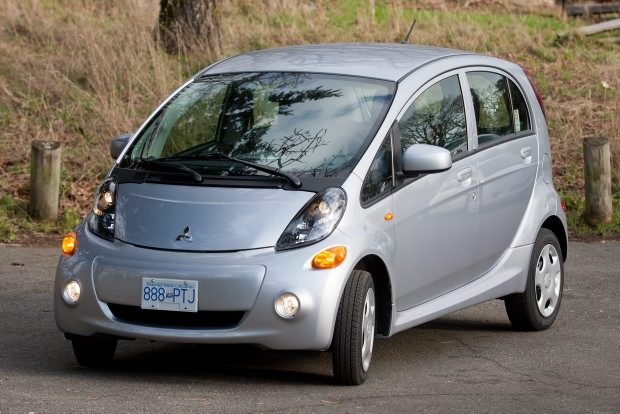One of the questions that invariably turns up when talking about electric vehicles has to do with the battery. It's a fair question, but the answer is elusive.
Currently the cost of the lithium-ion battery accounts for perhaps half the cost of an EV. Manufacturers haven't disclosed the replacement cost of a battery. Some experts have pegged the cost at about $750 to $1,000 a kilowatt-hour.
That means the 16 kWh battery in my MiEV costs between $12,000 and $16,000.
Prices have fallen from $1,500 per kWh, and experts say they will drop further as battery manufacturers ramp up production to meet demand in the years ahead, dropping to $500 a kWh in two years' time. But some observers say battery prices have to drop even more, perhaps down to $100 per kWh, to make an impact on adoption by the general public.
The best comparison is the computer and telecommunications industries. Since the 1990s, advances in technology and consumer demand have driven the cost of laptops and cellphones - which use lithium-ion batteries - consistently lower. The same trend is being observed in EV batteries. But for now the cost of the battery in an EV is significant.
The other variable is a battery's life cycle. Like an internal combustion engine, a battery wears down over time. Mitsubishi projects that the battery in the MiEV, with regular charging, will degrade 20 to 30 per cent in 10 years. The battery is covered by an eight-year/160,000-km warranty against defects. The Leaf and Volt - and most hybrids, for that matter - have similar warranties on their batteries.
Critics will say that the cost of replacing the battery negates any savings in fuel over that time.
But even if the battery is at 70 per cent, it is still serviceable and perfectly useful for urban trips - only its range is affected. How many drivers of internal-combustion cars rebuild an engine in 10 years? Many would drive their vehicles until the engine packs it in. Most people would trade in their vehicles way before then.
If history is any guide, the replacement battery in 10 years' time would cost a lot less than it does today.
An interesting alternative to battery anxiety already exists in Japan. A fleet of EV taxis operates in Tokyo with swappable battery packs.
The operator buys the vehicle, but not the battery. When the taxi's battery is low, he pulls into a battery station. An automated battery extractor removes the spent battery and replaces it with a full one and the taxi is away in about five minutes.
The company that owns the facility also owns the batteries. It tracks the charge of every battery in the fleet in real time, sending warnings when the taxi operator needs to come in for a pit stop.
The taxi company does not have to worry about battery maintenance or replacement. Apart from the five minutes needed to extract and replace one battery for another, its drivers don't need to wait around for their cars to charge.
People need to keep in mind that solutions to various shortcomings are being resolved at breakneck pace for auto manufacturers.
The new Ford Focus EV will debut next month at the 91原创 International Auto Show. The public will find the in-car charger capable of charging the Focus twice as fast as anything on the market. The next-generation Nissan Leaf - expected to debut in the fall - is rumoured to possess the same technology.
With only three vehicles to choose from, EVs are the ultimate niche market today. To be considered a mainstream vehicle, it needs to deliver on price, performance, reliability and safety.
Improving the battery on all these fronts will be perhaps the most-watched topic in the years ahead.
Follow me on Twitter: @pedrothecarguy EV Microsite: timescolonist.com/pluggedin



